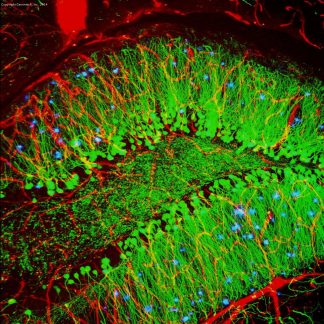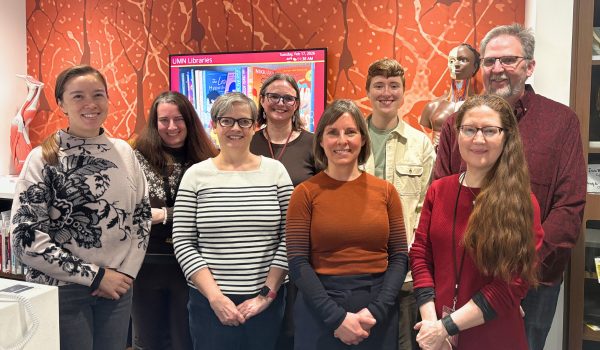by Amy Claussen
News reports in Forbes, Washington Post and CNN have brought attention to the significant rise in Alzheimer’s deaths — a 55 percent increase from 1999-2014. The data comes from the May 26, 2017 Morbidity and Mortality Weekly Report (MMWR) by the Centers for Disease Control and Prevention.
The MMWR found that the rate of Alzheimer’s deaths has increased significantly along with the number of people with Alzheimer’s dying at home. More education and health care assistance will provide needed support to patients and caregivers, according to the report.
Alzheimer’s Disease and Brain Awareness Month
Alzheimer’s Disease, is the sixth leading cause of death in the United States and there is no cure. The Alzheimer’s Association and other organizations are raising awareness of this public health crisis and working to increase support for further research and education.
Misleading information about this disease can cause confusion for patients and caregivers. Fortunately, reliable sources of information exist and are freely available to the public. The Alzheimer’s Association has a webpage on Alzheimer’s Myths that breaks down some common misconceptions.
And the association published a special report 2017 Alzheimer’s Disease facts and figures that includes statistics for prevalence, morbidity and mortality, care giving, and health costs.
The amount of health news stories can seem overwhelming. Consider the latest news reports on Alzheimer’s and olive oil — Alzheimer’s: How extra virgin olive oil prevents brain plaques and preserves memory — in Newsweek and similar headlines from USA Today and the Daily Mail. It’s important to take a closer look at the study to find the researcher’s discussion and conclusions about their research.
The research study on olive oil these news sources are referring to is Extra-virgin olive oil ameliorates cognition and neuropathology of the 3xTg mice: role of autophagy (Lauretti et.al, 2017). The study was conducted on mice receiving a diet supplemented with extra virgin olive oil (EVOO). The researchers found that EVOO had a beneficial effect on behavioral deficits, synaptic pathology, and Aβ and tau neuropathology in mice.
Research done on mice is a vital step in the scientific process, however, further research is needed to determine if these results can be translated to humans.
Learning how to evaluate health news and scientific research is a valuable skill. There are many resources available to help.
- Evaluating Health Information from MedlinePlus
- Videos and Tutorials on evaluating internet health information, finding quality resources, and using trusted resources.
- Understanding Medical Research from MedlinePlus
- Resources to help you evaluate health information.
- Links to glossary of clinical trial terms and common abbreviations.
- How to Read a Research Paper.
- How to assess health claims in the news
- Brief overview and talk given by Carl Heneghan, Director of Centre for Evidence-Based Medicine.
- Curiosity Creates Cures: The Value and Impact of Basic Research
from National Institute of General Medical Sciences- A summary of the importance of biological research and it’s impact on treatment, diagnosis, and prevention of diseases in humans.
Free online resources for Alzheimer’s Disease
- PubMed Central (PMC) is a free full-text collection of biomedical journal articles at the U.S. National institutes of Health’s National Library of Medicine. You can find articles like this one on PMC — Alzheimer disease research in the 21st century: past and current failures, new perspectives and funding priorities (Pistollato et al., 2017)
- Alzheimer’s Disease Education and Referral Center is a service of the National Institute on Aging from the National Institutes of Health (NIA). All information and materials about Alzheimer’s causes, treatments, and diagnosis are researched and reviewed by NIA scientists. You can find news, publications, research centers, clinical trials and more help on this site. There are a number of Non-English health and wellness publications available in multiple languages.
- Alzheimers.gov provides free, reliable resources from experts in the field of Alzheimer’s care and research. Alzheimers.gov has a section for caregivers that provides coping strategies and self care. Treatment options, financial planning tips, resources for community and residential care facilities are provided.
U of M Libraries subscribed resources
Current student, staff or faculty at the U of M are encouraged to access PubMed and other health sciences databases from the library’s website in order to find library subscribed content.
Selected E-Books
- Adams and Victor’s Principles of Neurology, University of Minnesota subscribed ebook from the AccessMedicine ebook collection.
- Bradley’s Neurology in Clinical Practice University of Minnesota subscribed ebook from the ClinicalKey ebook collection.
Selected E-Journals
- Nature Neuroscience. Nature Reviews-Neuroscience. Lancet Neurology. Annual Review of Neuroscience. Alzheimer’s & Dementia
U of M resources
Research is being conducted at the University of Minnesota to find new treatments for Alzheimer’s Disease. Researchers across disciplines are combining their expertise to address this growing public health concern. The following is a sample of U of M clinical and research resources.
- The N. Bud Grossman Center for Memory Research and Care located at the University of Minnesota, is dedicated to Alzheimer’s research and to diagnosis and treatment for patients. Karen H. Ash, MD, PhD, and a Professor in the Department of Neurology, is one of the principal investigators at the center. To learn more about her work watch this video
- The Memory Clinic is a collaboration of the N.Bud Grossman Center for Memory Research and Care, the Department of Neurology, U of M Physicians, and the Fairview Health System. The clinic provides patients with a comprehensive evaluation and consultation with a physician. Ongoing support is provided following diagnosis.
- The Center for Aging at the University of Minnesota facilitates research to address the needs of the aging population in Minnesota. They educate students and train health care providers and inform public policy on issues relating to the aging process.
- Find An Expert from the Center on Aging contains a listing of University of Minnesota gerontology faculty who are experts on Alzheimer’s, Cognitive Impairment, Dementia, and Neuroscience and other age related topics.
- Community Aging Resources from the Center on Aging is a listing of links to other websites that cover a range of aging-related topics like Alzheimer’s, long-term care, financial planning resources.
- Finally, the Bio-Medical Library has a dedicated team of librarians who provide guidance and expertise on health sciences database searching. Access the Bio-Medical Library website to locate U of M subscribed journal articles, books and other materials on Alzheimer’s and other causes of dementia.
Disclaimer: Never disregard your health care providers advice or treatment because of something found online. Information provided here is not intended to be used as medical advice, diagnosis or treatment. All content is for general information purposes only. You should review all information from these and other sources with your healthcare provider.
References
Taylor CA, Greenlund SF, McGuire LC, Lu H, Croft JB. Deaths from Alzheimer’s Disease — United States, 1999–2014. MMWR Morb Mortal Wkly Rep 2017;66:521–526. DOI: http://dx.doi.org/10.15585/mmwr.mm6620a1
Lauretti, E., Iuliano, L. and Praticò, D. (2017), Extra-virgin olive oil ameliorates cognition and neuropathology of the 3xTg mice: role of autophagy. Ann Clin Transl Neurol. doi:10.1002/acn3.431





